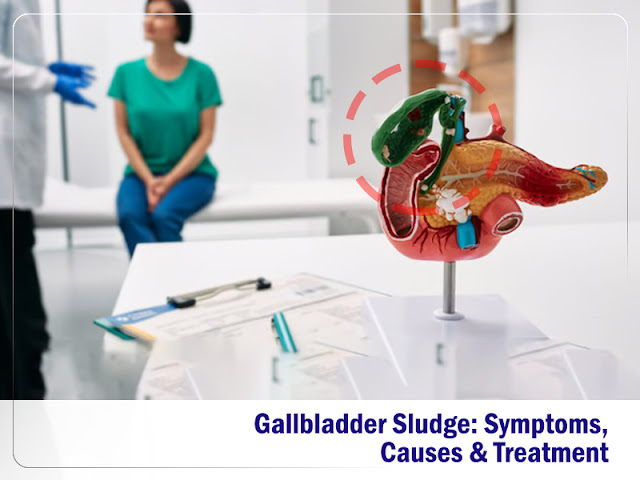Gallbladder sludge refers to a thickened mixture of bile, cholesterol, calcium salts, and other substances that accumulate in the gallbladder. It is a condition where the bile becomes thick, similar to sludge. This sludge builds up in the gallbladder and interferes with its normal functioning. If not treated, it can also lead to the formation of gallstones and pancreatitis, said a well-known gallbladder surgeon in Kolkata.
Common symptoms indicating that you have gallbladder sludge
While gallbladder sludge may not always cause symptoms, it can lead to discomfort and complications. However, when symptoms do occur, they include the following:
- Abdominal pain
- Bloating
- Nausea and vomiting
- Digestive issues
- Fatty stools resembling tar or clay
It's important to understand that these symptoms can be due to other conditions as well, so it's crucial to consult an experienced gastroenterologist in Kolkata for an accurate diagnosis and appropriate treatment.
What causes gallbladder sludge?
A reputed gallbladder surgeon said that several factors are believed to contribute to its development.
These include:
- High-fat diet: Consuming a diet rich in fats and cholesterol increases your risk of developing gallbladder sludge.
- Pregnancy: Hormonal changes during pregnancy can affect gallbladder function and lead to the formation of sludge.
- Rapid weight loss: Losing weight too quickly, especially through crash diets can disrupt the balance of bile components and contribute to sludge formation.
- Certain medical conditions: Pre-existing conditions in the gallbladder and liver increases your chance of developing this condition.
Treatment options
The treatment options for gallbladder sludge depend on its severity. Here are some common treatment options as discussed by a gastroenterologist in Kolkata.
- Gallbladder removal (Cholecystectomy): In cases where the sludge causes severe symptoms, surgical removal of the gallbladder may be recommended. Cholecystectomy can be performed through traditional open surgery or minimally invasive laparoscopic surgery.
- Medications: Certain medications are prescribed to help dissolve the gallbladder sludge. These medications work by altering the composition of bile, making it less likely to form sludge.
- Lifestyle modifications: In mild cases of gallbladder sludge, gallbladder surgeons recommend consuming a low-fat diet and maintaining a healthy weight. These measures can help prevent sludge from worsening and reduce symptoms.
Conclusion
Gallbladder sludge, although generally considered a less serious condition compared to gallstones, can potentially lead to complications and should not be ignored. If you suspect you have gallbladder sludge or are experiencing symptoms, you must consult a gastroenterologist without delay.




0 Comments